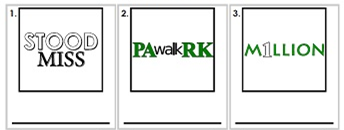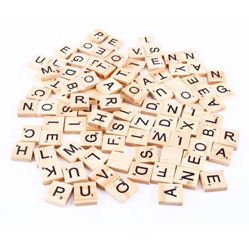8 Word games to boost your child’s vocabulary this School Holiday!
- LearningPoint SG
- Mar 15, 2023
- 4 min read
The school holidays are here again! Are you racking your brain over how to keep your child meaningfully occupied during the holidays? Worry not; we have done all the brainwork for you! Just sit back, relax and enjoy your cup of Joe while we present a list of fun and engaging word games which will also improve your child’s spelling, vocabulary and literacy skills.
1. HANG MAN

Age: 6 and up
Number of players: 2 or more
What you’ll need: Pencil and paper
Skills developed: Vocabulary and Spelling
How to play: One of the most famous word games for children is the popular Hang Man. Player 1 thinks of a word and Player 2 has to guess it before he/she gets “hung.”
Player 1 writes spaces for the letters of the word onto paper so that the other player knows how many letters there are in the word. Player 2 proceeds to choose a letter he/she thinks may be in the word. If it is correct, Player 1 writes the letter down in the space. If it is incorrect, Player 1 draws part of the “hangman”. If the drawing is complete before Player 2 can guess the word correctly, then Player 1 wins. Think of a word and play this with your child or play it online with your child.
2. WORDS WITHIN A WORD

Age: 7 and up
Number of players: 1 or more
What you’ll need: Pencil and paper
Skills developed: Vocabulary and Spelling
How to play: Choose a really long word with at least 8 – 10 letters. The longer the word, the better.
The aim of this word game is to try to make a list of small words out of the letters of the long word. For example, the word COMPUTER includes: come, pure, cute, put, etc. The longer the word, the higher the score. The person with the highest score wins. Use this online unscrambler to check your answers!
3. BOGGLE ON PAPER

Age: 8 and up
Number of players: 1 or more
What you’ll need: Pencil and paper
Skills developed: Critical Thinking, Creativity, Vocabulary and Spelling
How to play: Each player searches the assortment of letters for words of three or more letters. When a player finds a word, he/she writes it down.
Words are formed from adjoining letters. Letters must join in the proper sequence to spell a word. They may join horizontally, vertically, or diagonally, to the left, right, or up-and-down. No letter cube, however, may be used more than once within a single word. The person with the highest score wins. Try out this online boggle to generate letters and check your answers!
4. SCRABBLE SCRAMBLE

Age: 7 and up
Number of players: 2 or more
What you’ll need: Scrabble tiles, pencil and paper
Skills developed: Critical Thinking, Creativity, Vocabulary and Spelling
How to play: This quick adapted version of Scrabble does not involve the use of the board and is similar to Boggle. Choose eight letters out of the bag without looking, and put them face down on the table. When everyone is ready, turn the letters over and start a timer. Each person writes down as many words as they can make from the letters in one minute (or two). The person with the greatest number of words wins.
5. THE LETTER GAME
Age: 8 and up
Number of players: 2 or more
What you’ll need: Pencil and paper
Skills developed: Critical Thinking, Vocabulary and Spelling
How to play: Start by picking a category, such as animals or food. One person starts by writing a word (e.g. orange). The next person has to write a word in the same category that starts with the last letter of the first word (eggplant).
6. ANTONYMS / SYNONYMS
Age: 7 and up
Number of players: 2 or more
What you’ll need: Nil
Skills developed: Critical Thinking and Vocabulary
How to play: You say a word (“sunny”); your child has to list the opposite (“cloudy”). With older children, the words can get more sophisticated (“attack/defend” “savoury/bland”). To switch it up and make the game more exciting, ask your child to list one antonym AND one synonym.
7. ANAGRAMS
Age: 9 and up
Number of players: 1 or more
What you’ll need: Pencil and paper
Skills developed: Critical Thinking, Creativity, Vocabulary and Spelling
How to play: An anagram is a play on words created by rearranging the letters of the original word to make a new word or phrase.
Children and adults can both enjoy the fun in creating anagrams by rearranging letters of a word and phrase to make another new word or phrase.
Some examples of anagrams are:
Tar = Rat
Dusty = Study
Stressed = Desserts
A more creative way to use anagrams is to make them relevant to the original word or phrase. A great example of this is: debit card = bad credit. Some more examples of relevant, yet funny, anagrams are:
Dormitory = Dirty room
Listen = Silent
Astronomer = Moon starer
The eyes = They see
8. REBUS PUZZLES

Answers:
Misunderstood
Walk in the park
One in a million
Age: 9 and up
Number of players: 1 or more
What you’ll need: Pencil and paper
Skills developed: Critical Thinking, Creativity, Vocabulary and Spelling
How to play: Rebus puzzles are picture brain teasers made up of letters and words which represent a word, phrase or saying. They help to stretch the mind and stimulate creativity, thereby developing your child’s critical thinking skills and verbal reasoning.
We hope you have enjoyed reading through this specially compiled list of enriching word games for children. Some of these tried-and-tested word games are incorporated in Learning Point’s Excellence in English primary level curriculum to make learning engaging and enriching.
Lessons at Learning Point are made fun, accessible and meaningful through the use of these mini word games and our students have given them the thumbs up. Do try out the word games we have recommended during this school holidays! Make learning fun and exciting for your child!

Comments